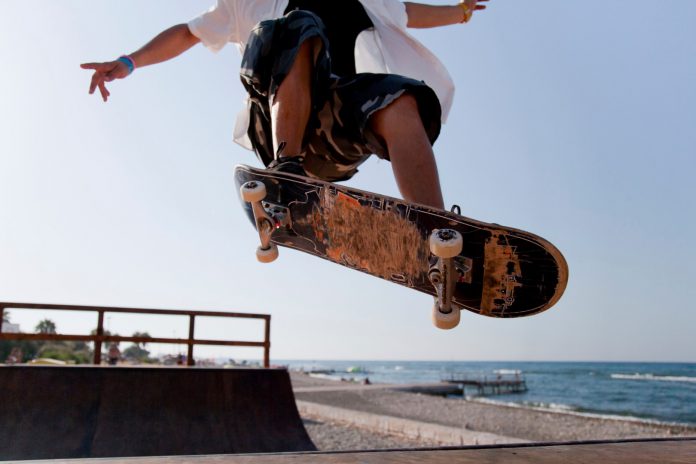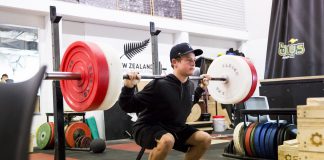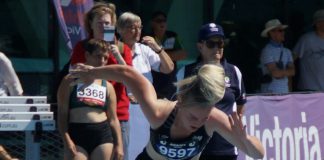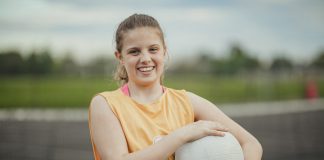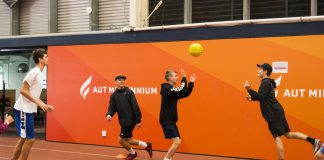No coach. No rules. No scheduled training sessions. Yet hours of purposeful practice. Why?
Part of the beauty of coaching early morning training sessions is that my daily commute into work doesn’t require a painful battle with Auckland’s notoriously bad traffic. But every now and again a morning commitment calls and a trip to the ‘other side’ of the city in rush hour and the joy of crawling nose to tail across the harbour bridge and through spaghetti junction begins.
The upside however, is that my route passes by the concrete fortress that is the Victoria Park Skatepark. What a fascinating place! No matter what time of the day or night you drive by, the park is occupied by a rabble of skaters and BMXers kicking around. Drive past it on the weekend and it’s pumping!
As I cruise past, I often find myself thinking – what motivates these guys to skate? No coach. No scheduled training sessions. No player of the day award. Just a bunch of like-minded individuals hanging out together at every chance they get, performing the same trick over and over again to do it better than the last time they attempted it. And often doing so at times when they should probably be off doing something else… like attending school!
One of the key characteristics of any successful athlete is that their motivation to train, to get better, comes from within. It’s gotta be intrinsic. Things get done simply for the sake of getting better at something as well as the satisfaction that doing so brings. No question, in their pursuit of excellence, they need to be challenged and supported by others around them, but ultimately it’s up to them. Skateboarding is one of the best examples of this.
So what it is about the skateboarding environment that develops the passion and commitment of the riders to constantly seek improvement and success?
There are no rules.
Skateboarding has no organised trainings. Or a rule book. Or referee calling the shots. You get to decide when you do it, who you are going to do it with, and what you’re going to focus on where you’re there. This level of choice is hugely powerful and leads to the type of motivation that will be around for the long term.
Feedback is meaningful
Getting better at something requires regular, meaningful feedback to let you know how you’re progressing. There’s nothing more meaningful than a face plant onto concrete following catching an edge, or a rail slide that goes horribly wrong. The skatepark environment also provides many opportunities to observe the ‘ideal’ performance. Seeing a trick done right by a skater better than you is a great way to learn. And peer-feedback happens constantly. There’s something incredibly meaningful about a friend riding alongside you providing you with the tweaks you need to improve, and all the while encouraging you to try again and again until you succeed.
Beginners hang out with experts.
Inspiration plays an important role in creating the desire to get better at something. We see something cool, and want to do it too. In our very social world, it’s easy to follow the experts in the field you’re interested in. Simply flick on the tele for the latest live sporting event or talent show, or jump on YouTube and you get instant access to the best going at it. And when we do, in that moment, we get inspired by how cool it would be to be just like them. But how often does this actually influence ‘our’ learning? Does it really change things when we do get out there doing it for ourselves? Watching an expert performance on TV, or an iPad or smartphone is one thing, but how many sports provide the beginner with an opportunity to hang out with an expert performer in real life, and feel, breathe and learn in that moment? Not many. But skateboarding certainly does. The skatepark provides an inspirational environment for learning. Beginners are encouraged to push their ability limits, make mistakes, discuss what went wrong with their mates, and then try again to succeed, all because that’s exactly how the ‘best’ skaters at the park are doing it.
The rider is appropriately challenged to learn.
In most sports the athlete relies on the coach to set the level of difficulty for learning. Given that every athlete’s optimal level is different, even if only slightly, this is a difficult thing for the coach to get right all of the time. In skateboarding, the environment takes cares of this. The physical environment allows for an infinite range of tasks at varying difficulties for the rider to attempt. The social environment is such that through rider encouragement, expert inspiration and peer pressure skaters intrinsically choose to attempt tasks that are at the edge of their comfort zone, which we know is the best place to be for effective learning. The result? Riders are appropriately challenged to learn (i.e. task difficulty is progressively increased), and time spent practicing, during which there is no punishment for making mistakes, leads to frequent feelings of mastery through free exploration, new achievements and the ability to start over as many times as you wish.
I truly believe that the skatepark is a great example of effective learning. The combination of no rules, meaningful feedback, inspirational role models, and stepped challenges that appropriately challenge each athlete individually, results in self-directed, intrinsically motivated, confident athletes who turn up day after day for more. Just because getting better feels good.
My challenge to you is this: how can you make your sport’s practice environment into a ‘skatepark’?

























